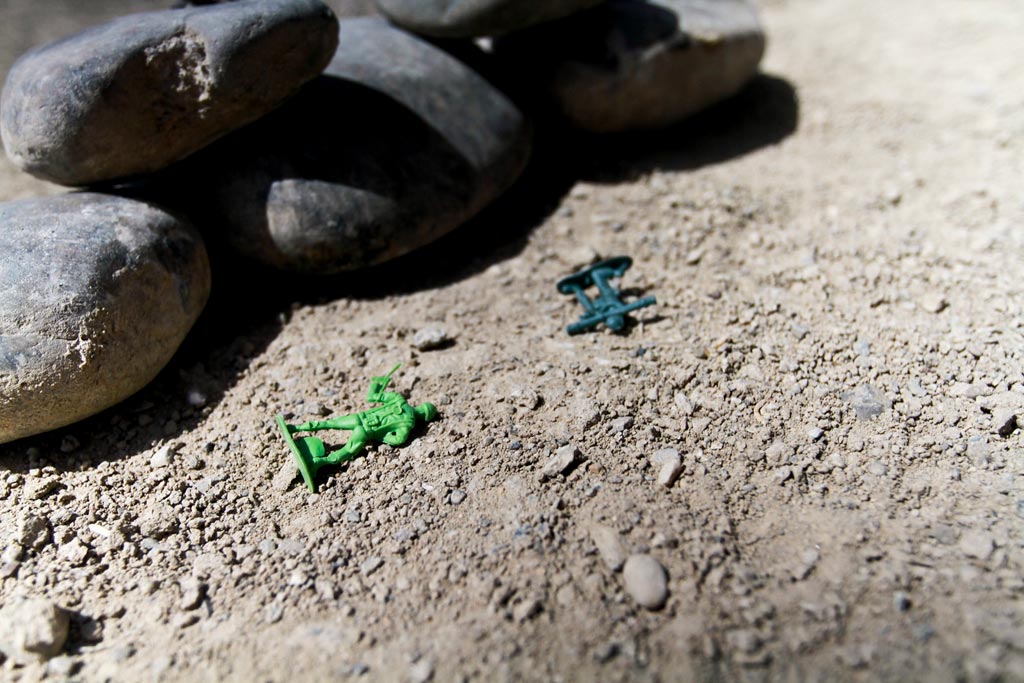
On September 11 this year the longest war ever waged by the US will come to an end, in a phase involving both the US and NATO, following the withdrawal announced by Biden, 20 years after the al-Qaeda attack on the Twin Towers and the Pentagon. Lest there be any doubt, it will be a defeat. In fact, the war will continue, but without the US and its allies; it will enter a new phase and the Taliban will need only wait to reap what they have sown. It was an ill-judged war. Osama Bin Laden and al-Qaeda lost their bolthole, but managed to escape and regroup in a more diffuse way. Their leader was only killed by US special forces in 2011. But the occupation was also badly thought-out and planned, an entry with no exit strategy. All in the name of the ‘war on terror’, Jihadist terror, based on article 5 of the NATO treaty, invoked for the first time. What can this catalogue of errors be attributed to? The Pentagon analyst Thomas P. Ehrhard has coined the concept of the ‘pathology of victory’.
This is a reference to the spirit with which the US entered the Afghan war believing itself to have won –something that was only partly true– the Cold War against the Soviet Union. The latter broke up and the Soviet system collapsed, but there was no internal revolution in Russia. Its leadership became more assertive, among other reasons because of a series of mistakes in the approach of the West, which had the chance to attract it into the European fold and now finds itself confronting Russia and China strategically at the same time. The pathology was also fuelled by the easy victory of Operation Desert Storm against Saddam Hussein after the Iraqi invasion of Kuwait in August 1990, and the war in Kosovo, carried out by the US by remote control, to use the expression then in vogue. The Vietnam syndrome was dead and buried. This pathology subsequently led to the even greater error of the invasion of Iraq in 2003. The strategic culture stemming from the pathology feeds part of US policy towards China. If the US won the Cold War, many in Washington thought, it could also win its rivalry with China. This is the culture that shaped many people who govern and influence the US today. But the situation now is wholly distinct, and the world is very different. This is not a new Cold War, even if some think it is, but rather an intense rivalry (with episodes of cooperation) that the US may not lose, but nor will it win, which is why it requires intelligent handling. It is enough to think how difficult it would be to define what ‘beating China’ actually means.
The US will pay a price for withdrawing from Afghanistan, although probably less than it would pay for not doing so. As Eliot Cohen points out, the ‘strategic freedom’ that Washington gains with its withdrawal will come at a cost in terms of ‘strategic reputation’. It is a strategic freedom particularly with regard to the troublesome Pakistan, which emerges as the true victor. That said, withdrawal from Afghanistan is dictated above all by Biden’s domestic political considerations, although in this respect he is not that different from Trump, who was already proposing it in the 2016 campaign against Hillary Clinton.
There is also the issue of the defence of values, now that they have become such a popular talking point again. Under the occupation, certain things improved in Afghanistan, such as the prospects and education of women. But in a televised interview he gave as long ago as January 2020, before reaching the White House, Biden said he bore ‘zero responsibility’ for the fate of women if the Taliban return to power after the US withdrawal. Such remarks are similar to those made in 2009-20, when, according to the diaries of Richard Holbrooke, who was in charge of this area at the State Department, as Vice-President he said ‘we aren’t there for that’. And it may be that he is right. But it will have consequences and may undermine US credibility in this regard elsewhere. It also remains to be seen how the US and its allies treat all the Afghans who have worked with them.
This prolonged military engagement has cost the lives of more than 2,000 US troops –and 102 Spanish– and cut short the lives of an unknown quantity of Afghans, but numbering in hundreds of thousands, not to mention the refugees, at a cost to the US of US$2.2 trillion. There are many in Washington who for some time have thought that, in general terms, anti-terrorist and counterinsurgent wars –which include the Afghanistan conflict– have proved not only extremely expensive in themselves, but have been a ‘distraction’ from focusing on other priorities, such as China (and, to a lesser extent, Russia), a challenge concealed by this pathology in the ‘strategic siesta’ of the 1990s and early 2000s, when the US was suffering the delusion of its unipolar moment.
Ehrhard, writing on the highly conservative Heritage Foundation platform, argues that, owing to this pathology of victory, ‘we [the US] lost our ability to mobilise our brainpower for major-power competition and, as a necessary precondition, to conduct deep, strategically focused studies of our adversaries’. This is something that we in Europe also lack. But for some time now, under Trump and now under Biden, alarm bells are sounding about China’s conduct in the world in Washington’s foreign policy, including think tanks; meanwhile Europe is still seeking its own path, although it will always be closer to the US. The pathology of victory, despite the lost war of Afghanistan, has still not been overcome.
Incidentally, Afghanistan shares a border 76 km long with Xinjiang (China), but it has a time difference of three and a half hours, the largest in the world for adjacent territories. That says a great deal.


